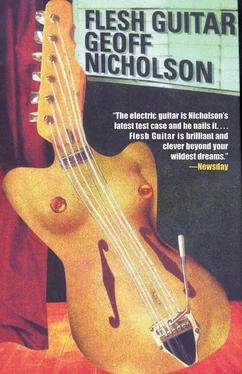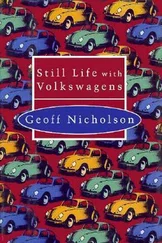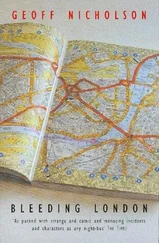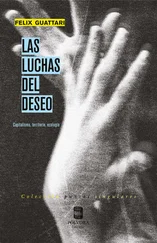I found myself signed up as rhythm guitarist with an outfit called Captain Ahab and His Magic Big Band, an intermittently outrageous combo with its roots in the blues. The eponymous Captain, originally just plain Johnny Ahab, sang, played harmonica and sometimes shouted a sort of cracked, surreal poetry. I knew the tour would be a learning experience, and would look good on my CV, even if the good Captain himself had a reputation for being difficult to work and live with. I thought I could handle him, but I didn’t know the half of it.
It was going to be a long, arduous world tour calling in at the Azores, Rio de la Plata, Sumatra, Java; all the hot spots. And the band was hot too. On bass there was the very heavy and very tattooed Sam Queequeg. He looked fearsome, but he was a great man to have on your side; certainly if somebody tried to invade the stage. Playing keyboards and acting as musical director was Randy Starbuck, the Captain’s right-hand man from way back. Billy Stubb was the drummer, and he was supplemented by Rikki Tashtego, a percussionist and the Native American of the group.
Each of them was a musical giant in his own right and they had all led their own bands at one time or another, but it was clear that on this particular tour they would be subservient to the genius and obsessive vision of the Captain.
It was some time before I met the man himself. I was auditioned and recruited by Randy Starbuck alone. The Captain would only show up when we were fully drilled and rehearsed. We had to be tight, disciplined and controlled so that we could become his creatures, and give him the freedom to pursue his own strange, lofty goals. What these goals were we only slowly discovered.
We were put through our paces in an old, disused whaling station in Nantucket, and although the Captain was rumoured to be in town we weren’t allowed to see him. His absence had a strange effect on the band. We all felt apprehensive and uneasy. We already suspected that the rehearsals would scarcely prepare us for the task ahead. We played as well as we could and yet we knew it would all be totally different the moment the tour started.
It was not until we’d been playing together for two weeks or more that the Captain finally put in an appearance. Starbuck had led us through a beefy, somewhat shambolic instrumental version of Rod Stewart’s ‘Sailing’, which had ended in a loose but undeniably exciting burst of improvised sound and fury. We looked up and there was the Captain, standing at the back of the hall.
He was quite a spectacle. There seemed no sign of common bodily illness. His whole high, broad form seemed made of solid bronze and shaped in an unalterable mould like Cellini’s cast of Perseus or like an Oscar statuette. He was wintry, bare, rugged, like a thunder-cloven oak.
He had a formidable scar. It started high up in his long grey hair, continued white and livid down one side of his tanned, chiselled face and neck, and disappeared inside the collar of his black silk shirt. Whether he was born with the scar, or whether it was the result of over-enthusiastic audience participation on some earlier tour, I couldn’t say, but by mutual consent it was never mentioned by anyone.
So charismatic was the Captain that at first I hardly noticed the curious false leg on which he stood. How he had lost his real leg I had no idea at the time, but I could see it had been replaced by a false one fashioned from the rosewood neck of a pre-CBS Fender Telecaster. It gave him a strange, insecure posture, not entirely unlike Gene Vincent. You couldn’t look away. When he shambled on to the stage, any stage, and hooked that leg around the microphone stand and began to sing, people took notice. Snappier critics than I have written that he ‘had crucifixion in his face and all the regal, overbearing dignity of some mighty woe’, and I couldn’t put it better myself.
We went through ‘Sailing’ again. The Captain sang a couple of verses with us. His sudden appearance had thrown us into musical confusion. We played extremely badly for him, and yet when he got to the end of the song, as the band crashed hopelessly out of time, and into a chaos of discord and disharmony, an expression came upon his face that in other men might have resulted in a smile. We knew then that this was going to be a tour to remember.
We began in earnest. The tour was long and hard. The hotels were cheap and cheerless, the travel arrangements chaotic. We ate too little and drank too much. Drugs were popped at every conceivable occasion. Such sex as was encountered was brief and animalistic. It was just another tour in those respects. But, if I say so myself, the music was pretty good, and we were glad about that. We all wanted to do a good job for the Captain. Yet at the same time I think we were also aware that we might never quite be able to live up to the standards he was setting.
And as we toured we heard stories and rumours about the Captain, and though many of them were absurd or downright contradictory, they gradually gelled and made sense. We realized soon enough the nature of his mission. Quite simply he was in search of the Great White Noise. He had heard it once, had indeed created it with an early incarnation of the Big Band. It all stemmed from a date in a gaucho bar in Patagonia. It had started like an ordinary gig, but as the evening progressed the music had become increasingly free-form, increasingly wild. The band was blowing up a storm, something supernatural and terrifying. They played on for hours, rode the whirlwind till they feared for their very souls. A point came when they were no longer playing music, rather they were involved in something perilous and incorporate and life-threatening. It was indeed a great white noise that drew them to the edge of madness and mayhem.
They played till they couldn’t play any more, until they were spent and all the music had been wrung out of them. When they eventually left the stage they were wrecked, but they all thought it was worth it for the sake of having produced that wild, wild noise.
However, it turned out to be a one-off, an end rather than a beginning, a fluke perhaps. They were never able to recapture that sound, that moment, and so the Captain broke up the band, decided to try again from scratch. From then on he had toured the world, his monomania heavy upon him, always trying out new bands, new equipment, seeking out new audiences and venues. He’d hear of a hot new bass player from Estonia, of a happening club in Mauritania, and he would be there trying to recreate that sound; but to date he had failed miserably. Consequently his manner was both frantic and morbid, and it seemed to us that he put into his quest all the general rage and hate felt by his whole race from Adam down.
And we also heard stories of how he came to lose his leg. It was said that on that famous occasion he was so transported by the music, so utterly delirious, that he climbed to the top of a stack of speakers and fell off, shattering his leg. Despite all the administrations of a good Patagonian surgeon, the leg was lost, and in the madness of his convalescence he decreed that he would become a living instrument, the means by which that great white noise was recaptured, hence the neck of the Telecaster. It sounded like far-fetched stuff, yet nobody who met the Captain had any trouble believing it.
We toured on. There were good gigs and bad gigs. Gigs when we didn’t play as well as we wanted to, gigs where we played supremely well. But the only gigs that interested the Captain were those where a kind of madness came over us, when we played beyond ourselves, when we successfully pushed and tore the envelope. Some audiences seemed to understand what we were about and urged us on, others simply found us crazed and incomprehensible.
The Captain was enough of an old pro that he could never be accused of shortchanging an audience, but he didn’t see himself simply as an entertainer. He was going all the way and if the audience couldn’t go with him that was just too bad. There were nights when we thought we were getting close, when the music was pure abstraction, something radical and deranged, but the Captain insisted we go further. Within the band there were those who suspected it might all end in tears, that the Captain might lead us into some sort of rock and roll hell from which there was no return, but nobody ever suggested we hold back or try to pace ourselves. Maybe it was the drugs, maybe it was exhaustion, but we were all prepared to follow him to the end of the line.
Читать дальше












